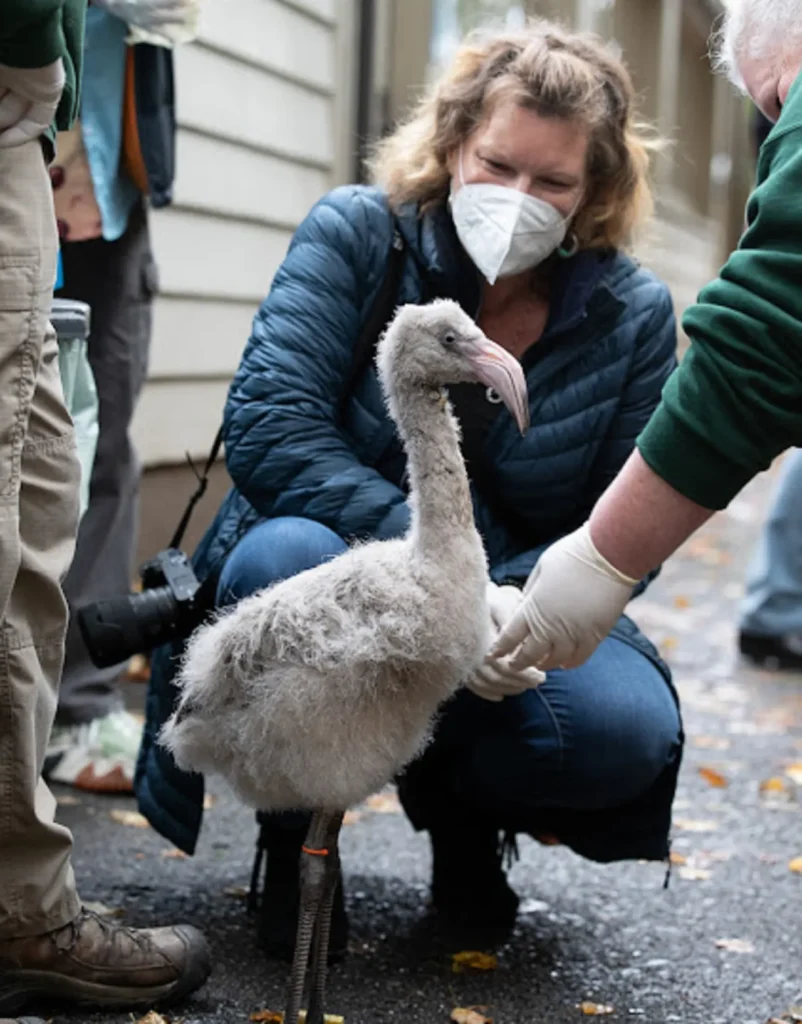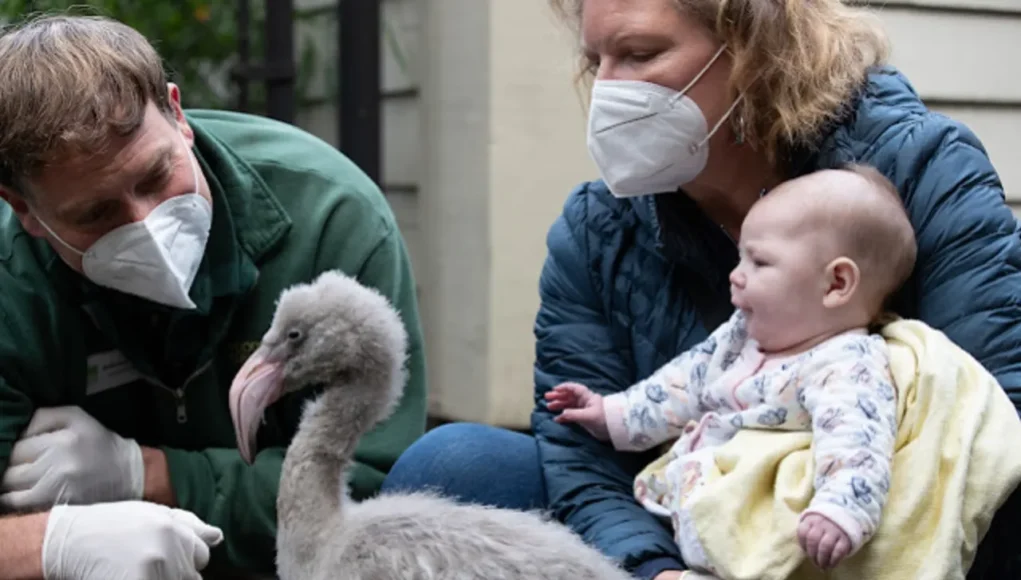Today’s beautiful news: a great story comes from Seattle, Washington.
Let’s dive into a tale that sounds straight out of a heartwarming novel, yet it’s as real as the sky is blue. Imagine, if you will, a flight not just traversing the vast skies but carrying a mission far beyond the ordinary passenger’s journey. This is the story of Alaska Airlines Flight Attendant Amber May, a woman whose quick thinking and compassionate heart turned a potentially tragic situation into a narrative of heroism and unity.

On a seemingly routine flight from Atlanta to Seattle, nestled among the luggage and the array of passengers, lay a cargo of extraordinary significance: six Chilean flamingo eggs, precious and fragile, embarking on a journey from Zoo Atlanta to their new home at Woodland Park Zoo in Seattle. These weren’t just any eggs; they were delicate life pods, carrying within them the next generation of Chilean flamingos, vulnerable yet filled with potential. The eggs, meticulously packed and monitored, needed constant care to ensure their safe arrival, highlighting the delicacy and vulnerability of nature’s creations.
Midway through the flight, amidst the hum of the engines and the occasional chatter, a critical challenge emerged. The incubator, a lifeline for the eggs, ceased to work. In an instant, the atmosphere shifted from routine to critical. The malfunction posed an immediate risk to the flamingo eggs, threatening the survival of the unborn flamingos. The situation demanded quick thinking and immediate action, putting to the test the resolve and ingenuity of those on board.
In this moment of crisis, Amber May stepped forward, embodying the spirit of a true hero. Recognizing the gravity of the situation, she, alongside an animal keeper, devised an innovative solution. Transforming warm water-filled gloves into a makeshift nest, they created a sanctuary for the flamingo eggs, a testament to human creativity and adaptability. This quick adaptation was more than just a temporary fix; it was a beacon of hope, a demonstration of the extraordinary lengths to which individuals will go to protect and preserve life.
The story, however, doesn’t end with Amber’s quick thinking. It’s also a narrative of collective effort and shared compassion. Fellow passengers, upon realizing the situation, didn’t hesitate to offer their coats and scarves, contributing to the makeshift incubation effort. This unity, a shared resolve among strangers, underscores a profound truth about the human spirit’s capacity for kindness and support in the face of adversity.

Months later, the impact of that day’s actions culminated in a heartwarming chapter. Amber received an unexpected call from Woodland Park Zoo, an invitation to meet the baby flamingos whose lives she played a pivotal role in saving. This reunion wasn’t just a meeting; it was a celebration of life, a testament to the difference one individual can make, and a reminder of the interconnectedness of our existence.
Amber May’s story is more than an account of averted tragedy; it’s a narrative that weaves together themes of ingenuity, compassion, and unity. It reminds us that heroism can manifest in the most unexpected circumstances, urging us to go above and beyond, to extend ourselves for the sake of others, even when the others are as small and delicate as an egg. This story leaves us inspired, awestruck, and perhaps a little more hopeful about the world and the people in it. In the vast tapestry of life, every act of kindness, every gesture of compassion, adds a thread of hope and light.







